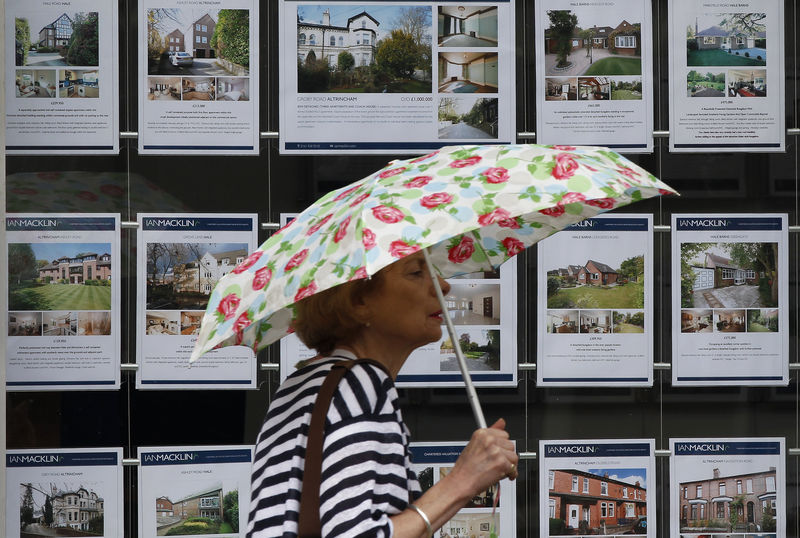LONDON, March 29 (Reuters) - Lending to British consumers grew at its slowest annual pace in four-and-a-half years in February and banks approved fewer mortgages as Brexit approached, Bank of England data showed on Friday.
The annual growth rate in unsecured consumer lending slowed to 6.3 percent from 6.5 percent in January, its weakest rise since September 2014, the BoE figures showed.
British consumers reined in their spending in late 2018 and have remained in a cautious mood in early 2019, faced with the possibility of the country leaving the European Union without a deal to smooth the economic shock.
However, there were some signs that consumers are not reining in their spending sharply.
Figures for unsecured lending in February alone showed a 1.145 billion-pound increase, higher than economists' forecasts of a rise of 900 million pounds.
The BoE said the number of mortgages approved for house purchase fell to 64,337 in February from 66,696 in January, compared with a median forecast of 65,000 in a Reuters poll of economists.
Britain's housing market has weakened in the run-up to Brexit with price growth at around five-year lows.
Earlier on Friday, lender Nationwide said house prices rose by an annual 0.7 percent in the 12 months to March. While picking up slightly from a month earlier, it compared with increases of about 5 percent a year at the time of the Brexit referendum in 2016.
The BoE data showed net mortgage lending, which tends to lag behind approvals, at 3.457 billion pounds in February, down from 3.587 billion pounds in January. Economists taking part in the Reuters poll had expected a rise to 3.7 billion pounds.
Net credit card lending rose to 442 million pounds, picking up from 384 million pounds in January.

The BoE also said net gilt sales by foreign investors totaled 8.281 billion pounds in February compared with net sales of 9.545 billion pounds January.